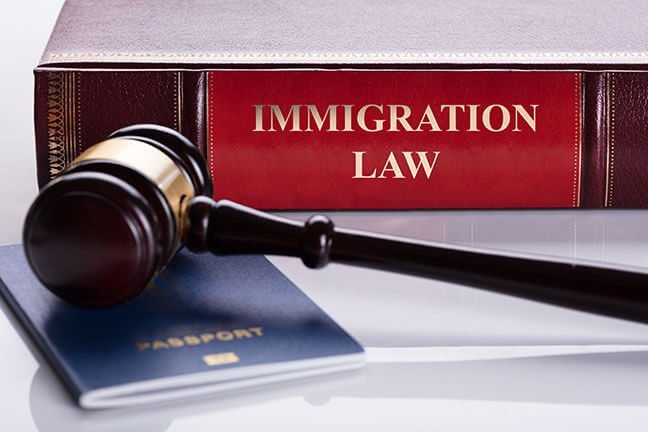One increasingly popular way for foreign nationals to apply for U.S. permanent residency status is the immigrant investor program, also known as EB 5 visa. If you have the financial resources, this route offers many advantages when compared with other types of immigration programs, such as relatively faster waiting time and a clearer timeline.
Yet the application process for EB 5 visa is highly complex and requires applicants to submit a large amount of documentation proof and paper work. It is not unusual to hear cases where applicants have had their cases rejected or turned away because of avoidable mistakes in their forms or missing documents. As such, one way for applicants to address these issues is to hire to lawyer or legal consultant to assist them with the application. In this guide, we will go through the checklist of what you need to know and look out for before you engage with an EB5 visa attorney.
What is the Immigrant Investor Program?
Before we go into EB5 attorney, let us give you a brief introduction of what the EB5 visa program is and why it has been gaining popularity.
The program, which is run by the U.S. Citizen and Immigration Services (USCIS), is officially know as the EB-5 Immigrant Investor Program. The USCIS is a branch of the U.S. Department of Homeland Security.
The Immigrant Investor Program is a US visa program that provides a way for foreign investors and their immediate families to obtain U.S. permanent resident status by making a qualifying investment in a new commercial enterprise, or regional center program, that creates jobs for U.S. workers.

What is Special about the Investor Immigrant Program?
The EB-5 program typically requires an investor to make a substantial capital investment in a new commercial enterprise within the U.S. The minimum investment amounts depends on the location of the business:
- $1.8 million in a new commercial enterprise that is not located in targeted employment area (TEA).
- $900,000 in a new commercial enterprise located in a TEA, which is typically a rural area or an area with high unemployment.
The main goals of the EB-5 program are to stimulate economic growth and create jobs. As an additional requirement, the investment must help create or preserve at least 10 full-time jobs for qualifying U.S. workers in the first two years of the investor’s admission to the U.S. as a conditional permanent resident.
Is there a Path to United States Citizenship Under the EB 5 Program?
Initially, a successful EB-5 applicant is granted conditional permanent residency, which will be valid for two years. During this period, investors and their immediate families (spouse and unmarried children under 21) have the same rights and privileges as other U.S. permanent residents. After two years, the investors must file a petition to remove the the conditions on their green cards within the 90-day period immediately preceding the second anniversary of their admission as conditional residents. This involves demonstrating that the required investment has been maintained and that the job creation requirements have been met.
After holding unconditional permanent residency for a period of time (usually five years), EB-5 investors and their families can apply for U.S. citizenship through the naturalization process, provided they meet the eligibility criteria. Many EB-5 investors choose to invest through USCIS-designated regional centers. Regional centers are entities approved by USCIS to pool investments from multiple EB-5 investors into larger projects. These projects often rely on indirect job creation and may offer investors a more passive role in the management of the enterprise.
Now that we have explained how the EB-5 program can be a highly complex immigration pathway, you probably have an idea the difficulties involved in navigating the application process and meeting the program’s strict requirements. As we mentioned earlier, it is because of this complexity that many investors choose to work with immigration attorneys to help guide them through the process.

What does an EB 5 Attorney do?
As the term suggests, an EB5 visa attorney is a lawyer who specializes in helping individuals and their families, as well as businesses with their Immigrant Investor Program application.
Here are some of the key roles and responsibilities of EB-5 visa attorneys:
Navigating the Complex Process
With the EB-5 program’s complex and multifaceted application process, EB-5 attorneys help clients navigate this process, ensuring they meet all the legal requirements and deadlines.
Structuring Investments
Attorneys can help clients structure their investments in a way that complies with EB-5 program requirements. This might involve working with regional centers or creating their own new commercial enterprises.
Document Preparation
EB-5 visa applications require extensive documentation, including business plans, financial records, and evidence of the lawful source of investment funds. Attorneys assist clients in preparing and organizing these documents.
Compliance with Securities Laws
Many EB-5 investments involve the sale of securities, which are subject to U.S. securities laws. Attorneys help ensure that EB-5 offerings comply with these laws.
Review of Business Documents
Attorneys review contracts, agreements, and other legal documents related to the investment to protect their clients’ interests.
Immigration Law Expertise
EB-5 visa attorneys are well-versed in U.S. immigration law and can provide guidance on the immigration aspects of the program, including the application for conditional permanent residency and later the removal of conditions.
Due Diligence
Attorneys can conduct due diligence on EB-5 projects to assess their viability and compliance with program requirements, helping investors make informed decisions.
Representation in Appeals and Denials
In cases of visa denials or other issues, EB-5 attorneys can represent clients in appeals and legal proceedings to protect their interests.
Investor Protection
EB-5 attorneys work to protect the interests of the investor throughout the entire process, ensuring that their investment is in compliance with program rules and regulations.

What Makes a Good EB 5 Attorney?
The quality of services offered by your EB-5 attorney can can key to your success in pursuing the EB-5 Immigrant Investor Program. It is important that you choose the right attorney to guide you through this complex process. Here are some key things to consider and know before hiring an EB-5 attorney:
Experience and Expertise
Look for an attorney with significant experience in EB-5 matters. Ask about their track record and the number of successful cases they have handled. EB-5 law is highly specialized, and having an attorney with expertise in this area is crucial.
Credentials and Licensing
Ensure that the attorney is licensed to practice law in the United States and is in good standing with the bar association. You can verify their credentials with the state bar association where they are licensed.
Reputation and References
Research law firms’ reputation within the EB-5 community. You should also seek referrals and references from past clients or industry professionals who have worked with the attorneys you are considering. Online reviews and testimonials can also provide insights into an attorney’s reputation.
Fees and Costs
Understand the attorney’s fee structure upfront. EB-5 attorneys typically charge a combination of flat fees and hourly rates. Ensure that you have a clear understanding of the costs involved and any potential additional expenses, such as government filing fees.
Conflict of Interest
In some cases, an attorney may have a conflict of interest if they represent multiple parties involved in an EB-5 project, such as both the regional center and the investor. Discuss any potential conflicts and how they will be managed.
Regional Center Knowledge
If you are considering investing through a regional center, inquire about the attorney’s familiarity with the specific regional center and project you are interested in. They should have experience working with the regional center and a good understanding of the project’s details.

Transparency
Choose an attorney who is transparent and honest about the risks and potential challenges associated with your EB-5 investment. They should provide a realistic assessment of your chances of success.
Client-Centric Approach
Look for an attorney who puts your interests first and provides personalized guidance based on your specific situation. Avoid attorneys who pressure you into making decisions or investments without thoroughly explaining the implications.
Contracts and Agreements
Before hiring an attorney, review and understand the terms of the engagement agreement. It should outline the scope of services, fees, and the responsibilities of both parties. Seek clarification on any terms you don’t fully understand.
Trust Your Instincts
Trust your instincts and work with an attorney you feel comfortable with and can trust. Building a good working relationship with your EB-5 attorney is important as you’ll be relying on their guidance throughout the process.
Consult Multiple Attorneys
Consider consulting with multiple EB-5 attorneys to compare their services, fees, and approaches, as it can help you make an informed decision.
Remember that the EB-5 process is complex, and choosing the right attorney can significantly impact your chances of success. Take the time to thoroughly research and interview potential attorneys to ensure they are the right fit for your EB-5 immigration and investment goals. Additionally, you can also consult with other professionals with expertise in EB-5 matters, such as financial advisor or consultant with experience in investment immigration programs.

